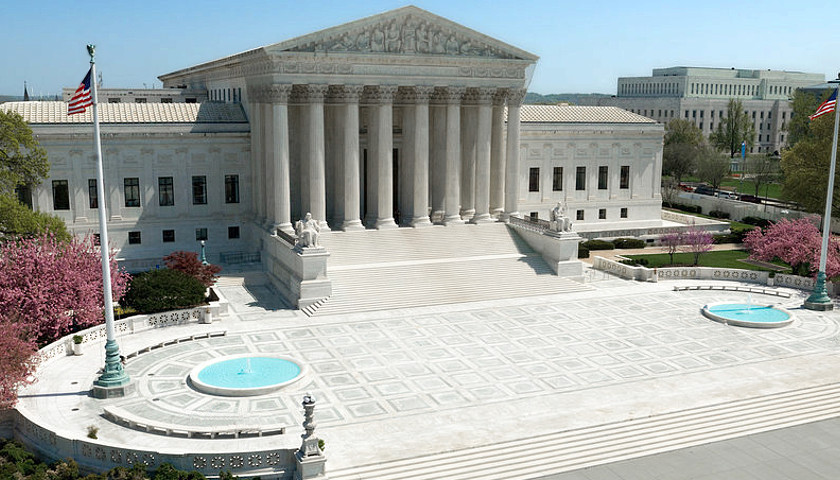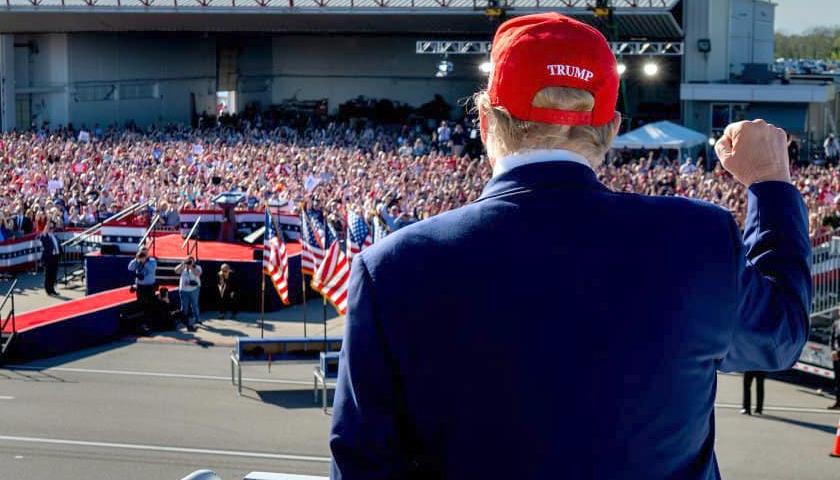by Katelynn Richardson
The Supreme Court is expected to release all of its remaining decisions by the end of the week.
Opinions coming down the line include decisions on former President Donald Trump’s presidential immunity appeal, an abortion case from Idaho and a consequential challenge to the Biden administration’s censorship efforts. The next opinion day is scheduled for Wednesday.
Below are some of the most significant issues the justices will decide on in the remaining cases this term.
Administrative State Power
 Under the Supreme Court’s 1984 Chevron ruling, courts are instructed to defer to reasonable agency interpretations of laws when the language of the statute is ambiguous. Critics argue Chevron deference gives the government an unfair upper-hand in litigation against its citizens, allowing agencies to assert their interpretations of statutes in court without facing real resistance, including on issues ranging from Second Amendment rights to religious liberty.
Under the Supreme Court’s 1984 Chevron ruling, courts are instructed to defer to reasonable agency interpretations of laws when the language of the statute is ambiguous. Critics argue Chevron deference gives the government an unfair upper-hand in litigation against its citizens, allowing agencies to assert their interpretations of statutes in court without facing real resistance, including on issues ranging from Second Amendment rights to religious liberty.
The Supreme Court could overturn Chevron deference in two cases brought by fishermen, Loper Bright Enterprises v. Raimondo and Relentless, Inc. v. Department of Commerce. In both cases, fishing companies sued after the National Oceanic and Atmospheric Administration implemented a rule requiring them to pay $700 a day to cover the salaries of federally-mandated on-board observers, which lower courts upheld based on Chevron.
Biden Administration Censorship Efforts
Wide-ranging government efforts to encourage social media companies to censor speech online came before the justices for oral arguments in March. The case, Murthy v. Missouri, asks them to consider whether the Biden administration’s conduct violates the First Amendment.
The Republican attorneys general of Missouri and Louisiana, along with five individual plaintiffs whose own speech was censored, brought the lawsuit. Documents obtained through their litigation demonstrated the government frequently asked companies to suppress “misinformation” on topics ranging from COVID-19 to the election.
A federal judge first issued an injunction in July 2023, finding the case “arguably involves the most massive attack against free speech in United States’ history.” The Fifth Circuit affirmed a limited version of the injunction blocking the White House, Surgeon General, CDC and FBI from coercing or “significantly encouraging” companies to censor speech.
Obstruction Charges For Jan. 6 Defendants
In Fischer v. United States, Jan. 6 defendant Joseph Fischer challenged the Department of Justice’s (DOJ) interpretation of the obstruction statute he was convicted under. The statute, Section 1512(c)(2), levies up to 20 years in prison against anyone who corruptly “obstructs, influences, or impedes any official proceeding.”
By applying the charge to defendants who obstructed Congress’ certification of the 2020 election, the DOJ impermissibly broadened a law intended to fight corporate fraud, Fischer argues.
The ruling could also impact special counsel Jack Smith’s prosecution of former President Donald Trump for allegedly seeking to overturn the 2020 election, since two of the charges in the indictment are connected to the statute.
Idaho’s Abortion Ban
The Supreme Court will soon rule on what the Biden administration alleges is a conflict between a federal statute it claims mandates abortions and an Idaho state law banning abortions, except when necessary to save the mother’s life and in cases of rape or incest.
Shortly after the Supreme Court handed down its landmark ruling reversing Roe v. Wade in 2022, the Biden Department of Justice (DOJ) sued Idaho over its Defense of Life Act. The DOJ argues the pro-life law prevents emergency room doctors from performing abortions necessary under the federal Emergency Medical Treatment and Labor Act’s (EMTALA) definition of emergency “stabilizing care.”
The Supreme Court has allowed Idaho’s ban to remain in effect while it decides the case.
Oregon City’s Public Camping Ban
In an effort to address homelessness, Grants Pass, Oregon, instituted a ban on camping or sleeping on public property, initially fining offenders up to $295, KGW8 reported. The Ninth Circuit ruled that the Eighth Amendment prevents the city from enforcing its camping ban against homeless people when there is no other place to go.
The case, City of Grants Pass v. Johnson, considers whether the ban violates the Eighth Amendment’s prohibition of “cruel and unusual punishment” as the Ninth Circuit previously held.
Trump’s Presidential Immunity Appeal
Trump is seeking to dismiss his federal election interference case based on the argument that he has presidential immunity for official acts taken while in office. Lower courts rejected his argument, but the Supreme Court will soon rule on his appeal.
Trump’s appeal has delayed the case for months, causing the district court judge to cancel the initially scheduled March 4 trial date and making it all but certain that a trial will not take place before the 2024 election.
Other Remaining Cases
The Supreme Court has yet to rule on a pair of challenges brought by the internet trade group NetChoice to Texas and Florida laws intended to combat viewpoint censorship online. A decision on Purdue Pharma’s bankruptcy settlement, which the DOJ challenged for the “exceptional and unprecedented” immunity it granted the Sackler family from future lawsuits over the opioid crisis, is also outstanding.
Additionally, the Supreme Court will decide next week whether the Securities and Exchange Commission’s (SEC) use of in-house judges violates the Constitution’s right to a jury trial.
– – –
Katelynn Richardson is a reporter at Daily Caller News Foundation.




